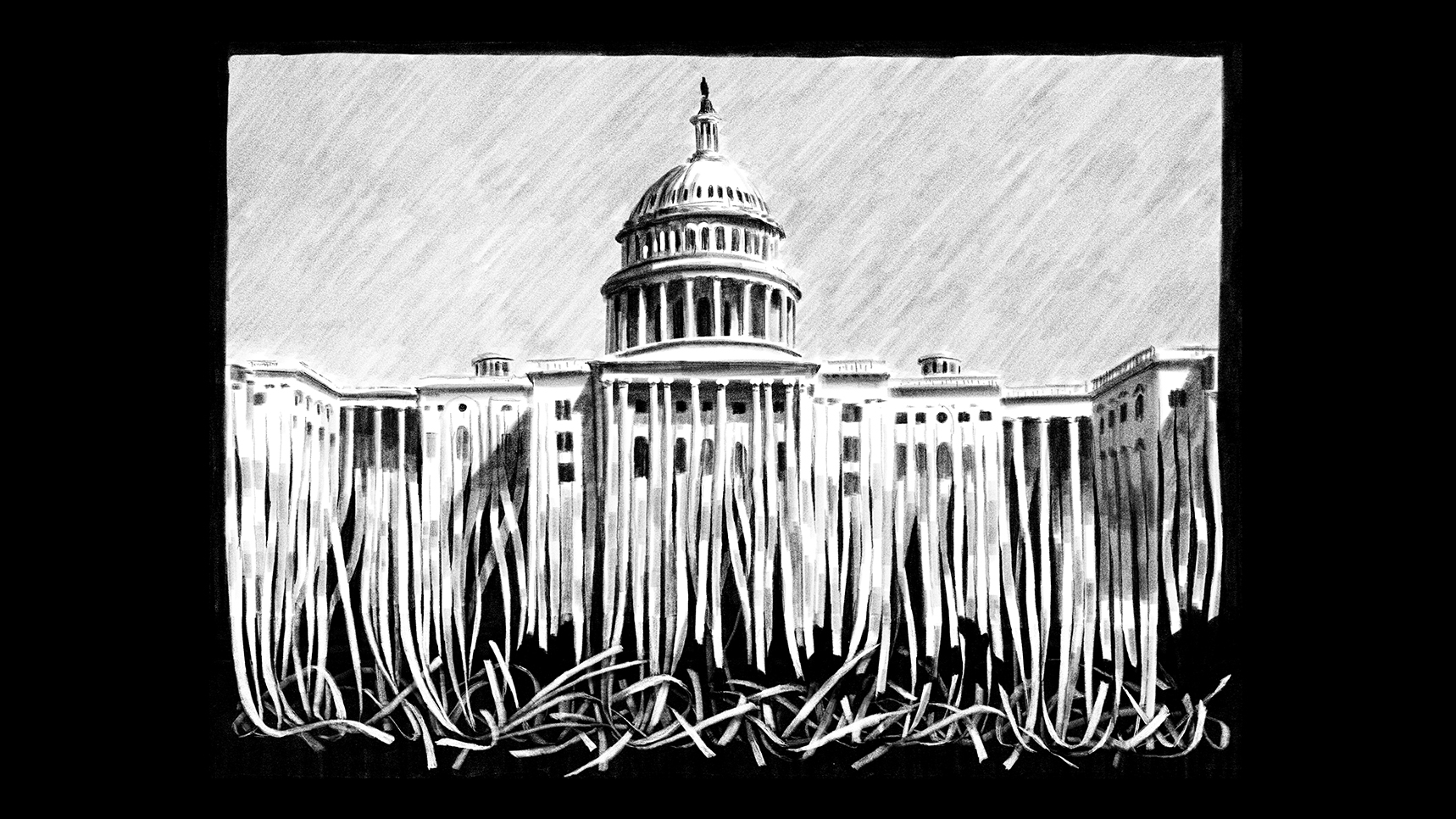Nathan Gardels is the editor-in-chief of Noema Magazine. He is also the co-founder of and a senior adviser to the Berggruen Institute.
The great historical irony of America is that, for all its valiant efforts as a global power fighting off external threats from fascism to Soviet communism, its ultimate demise will likely be the result of its own internal doings — or undoings.
The paradox is that the politics of former President Ronald Reagan, who is credited with winning the seminal ideological battle of the 20th century, the Cold War, is also the politics that undermined America’s future. The inability to come to grips with the COVID-19 pandemic can be traced directly to his notion in the 1980s that “government is not the solution to our problem, government is the problem.”
Reagan saw it as his mission to undo the ambitions of the welfare state, such as it was, that came into existence through the New Deal as a response to the Great Depression, and the Great Society, that sought to cushion the security of the elderly and mend the racial injustice decried by the civil rights movement. His mantra celebrated the cult of the entrepreneur who could create wealth freely without the burdens of society weighing on his or her profit margins, while demoting the importance of education to upward mobility and dissing the role of taxation and regulation as critical pillars for maintaining the operating capacity of a complex modern society. Public administration was demeaned as nothing more than meddlesome bureaucrats clogging up free enterprise with cumbersome paperwork.
This “spirit of the times” seeped so deeply into that part of the body politic that held most sway — “the deep anti-state” as it were — that it inspired even a revolt against the idea of universal healthcare under President Barack Obama. Future historians will surely puzzle over what madness prompted a public revolt against healthcare accessible to all.
The end result of this 30-year trajectory of erosion is a withered state unable to keep even microbes at bay. The world must marvel at how the same superpower that possesses unparalleled military prowess and hosts the ingenious innovations of Silicon Valley and its thriving unicorns is unable to competently manage the testing and contact tracing that tiny Taiwan and even much-maligned Italy have been able to do.
A few weeks back, hope was vested in the leaders of states like California, which early on invoked their authority to stop the spread of the coronavirus and blunt the blow of a widespread economic stall. Their leadership was not lacking. They talked the talk. But when it came to walking the walk, they discovered the feeble condition of public administration that lay underneath.
While the governor, state legislature and the U.S. Congress made massive funds available for those cast out of work, California’s Employment Development Department has been found wanting in execution, swimming in a backlog of claims still unfulfilled weeks, and in some cases months, after being filed. While testing was expanded, the few big corporate labs that dominate the market have been unable in broad terms to process the results in a manner more timely than the infection cycle of the pandemic. The statewide computer system set up to track cases has been miscounting for months. Contact tracing in many instances relies on furloughed librarians who must harangue a public loathe to reveal their private movements to “the state.”
Back during the first attempt at universal healthcare under the Clinton administration, first lady policymaker Hillary Clinton famously remarked that “it takes a village” for society to hang together, not just individuals doing their own thing. In the wake of the COVID incompetence, Frank Fukuyama, who even more famously wrote about “the end of history” with the post-Cold War triumph of liberal democracy and free markets, has drawn the more profound conclusion about the pandemic and political order: “It takes a state,” he writes in the current issue of Foreign Affairs.
The big question is whether America, with its raucous libertarian culture and dysfunctional democracy, can at this late stage rebuild its state capacity or become the ultimate victim of the first truly real-time global pandemic, no doubt one of many to come.
Pandemics are not the only challenge calling upon the restoration of state capacity. As Nicolas Berggruen and I wrote in our recent book, “Renovating Democracy: Governing in the Age of Globalization and Digital Capitalism,” the paradox on this front is that “the more dynamic a perpetually innovating knowledge-driven economy is, the more robust a redefined safety net and opportunity web must be to cope with the steady disruption and gaps in wealth and power that will result.” Beyond this, of course, is the overarching summons of collective action to tackle climate change.
Those who have long dreamed of the disappearance of the state, from Karl Marx to Reagan to the digital libertarians of Silicon Valley, are discovering what society without state capacity might look like. When the coming spirit of the times — “government is the solution, not the problem” — regains credence, let’s hope it’s not too late. Rome wasn’t built in a day, as the saying goes. Rebuilding what has been torn down is also a long-term process that impatient fate may well not so kindly accommodate.




